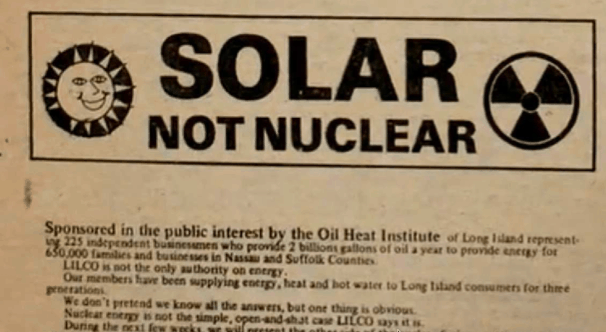I came across an informative article in the Time South Pacific edition (on-line of course) titled Plugging in to Nuclear. The teaser summary of the article was enough to grab my attention
As some greens learn to love atomic power, Australia weighs whether to use its abundant uranium at home.
Not only is the entire article worth a read for a balanced look at how various factions view nuclear power, but it also includes a useful paragraph at the very end that fits into the “Smoking Gun” series here.
For those of you that are new to the Atomic Insights Blog or who have simply forgotten about the smoking gun articles, this series is an attempt to document evidence of one of my primary theories. Based on about fifteen years worth of research, a little bit of understanding of human nature from life and literature, and a sideline of involvement in competitive businesses, I have reached the conclusion that a large portion of the financial and political support that has made the anti-nuclear movement a success comes from its competitors in the fossil fuel industry or its beneficiaries.
Here is the “Smoking Gun” passage from Plugging in to Nuclear
Cost. The two sides differ on how to compare the costs of nuclear and other power. Nuclear plants are hugely expensive to build: an average-sized plant costs about $A2.5 billion. But they need very little fuel—uranium yields up to 1 million times as much energy as the same quantity of coal. The ansto study found that, taking waste management costs into account, nuclear power from an advanced plant “is cheaper than generating it from coal or a [clean coal] station.”
Unlike its uranium, Australia’s fossil fuel reserves underpin huge domestic industries. Opponents say nuclear power would put thousands of jobs at risk. It’s largely for economic reasons that the premiers of New South Wales, Victoria and Queensland have vowed not to lift their states’ nuclear bans. Queensland Nationals Senator Barnaby Joyce agreed: “I can’t see the logic of promoting competition to my state’s major export.”
Read that paragraph again carefully. A study shows that a nuclear plant can produce electricity more cheaply than a coal plant. Coal is a huge industry in certain regions. A politician from one of those regions clearly states that he will not support a competitor to that huge industry.
My point in this series is to get people to “follow the money” and question the source or motivation of any anti-nuclear commentary that you find. There are plenty of sincere people who do not like nuclear power, but there are some very powerful people that have ulterior financial motives for their stance.

